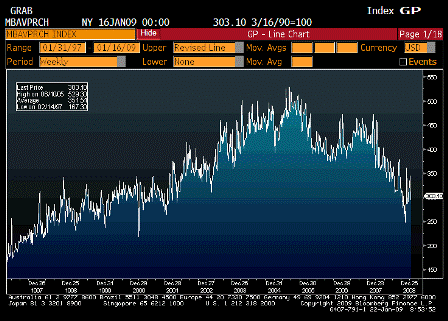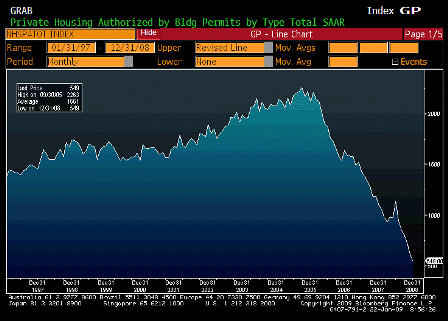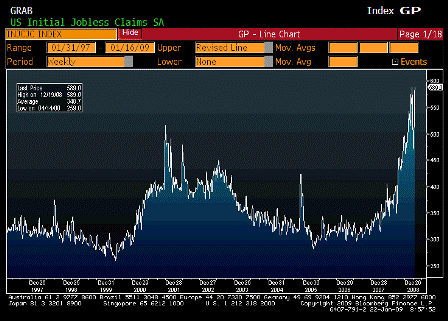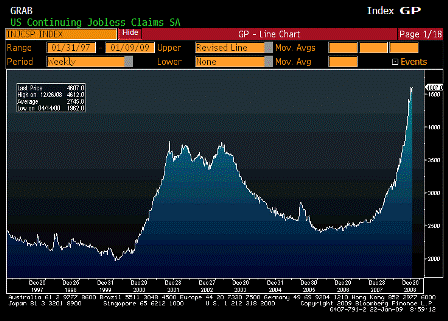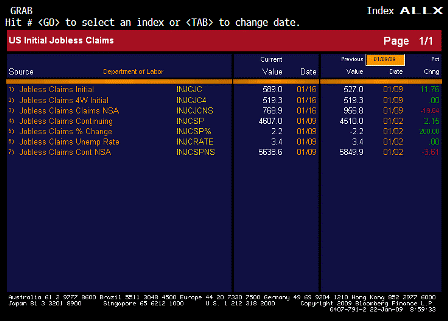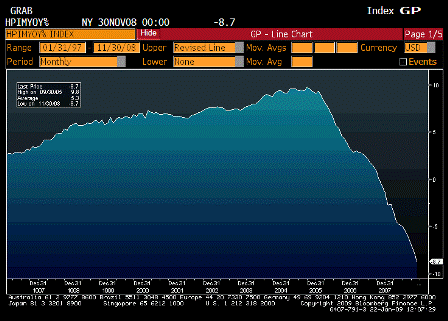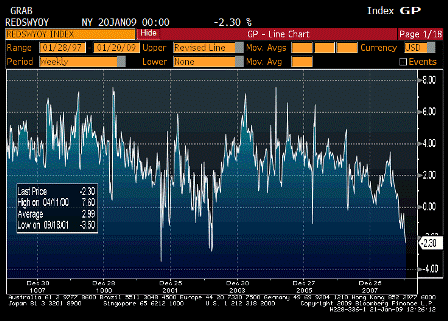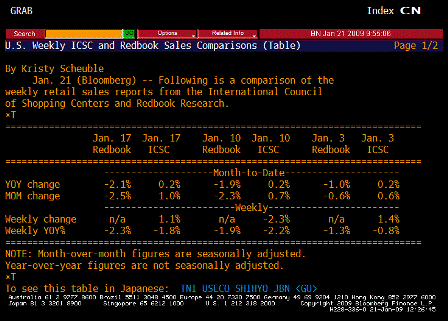[Skip to the end]
>
> On Thu, Jan 22, 2009 at 12:06 AM, Russell wrote:
>
> Warren:
>
> Is the UK going BK.
>
Many private sector agents, but not the government. There is no such thing in local currency, and the FX debt is private, not public.
When government takes over a bank and declares it insolvent, the holders of foreign currency debt can become shareholders, general creditors in liquidation, or simply wiped out if not senior enough.
There is no reason for government to pay any FX.
>
> They are going to have to nationalize the banks and take interest rates to zero.
>
Looks like they will be making those choices.
>
> The Pound is probably going to get par with the USD.
>
There’s an ‘inventory liquidation’ of pounds going on, as players exit, as well as private sector agents short USD and other FX covering.
The low price of crude had dried up the dollar income of the rest of the world as our trade gap shrinks, leading to a dollar short squeeze.
(Russian and mid east oil dudes who were selling their dollar revenue for the pounds they were spending on London flats and entertainment when oil was high, have cut back on the way down.)
And the worlds portfolio managers and army of trend followers are piling in with their shorts.
While this is a ‘one time’ event, it’s a big one!
The pound has looked over valued to me on an anecdotal purchasing power parity basis for quite a while. Last time I was there seemed even at one to one with the dollar prices would still be way too high over there.
Fundamentally, apart from anecdotal purchasing power parity, the pound looks OK. Fiscal has been tight for a while and isn’t all that loose yet, though they are talking about larger deficits. Prices are in check, with asset prices falling. And borrowing to spend is way down, probably for a while. But the same is true for the US, so there’s no bias there.
Net net, the pound was an indirect beneficiary of the high oil prices, and getting hurt by the fall.
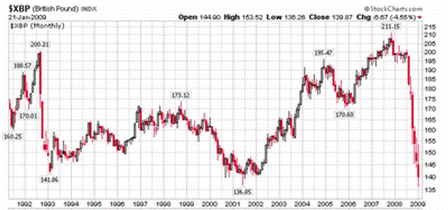

British pound
[top]





